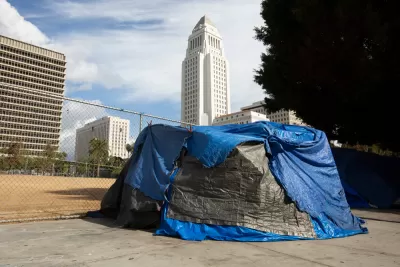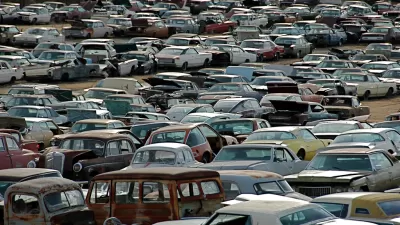A systematic reparations plan has begun in the city of Los Angeles, though it’s still too early to tell about the scale and impact of the plan.

The Los Angeles City Council recently approved a plan to identify available land for potential transfer to historically marginalized groups in the city in what could potentially become one of the largest examples of reparations in the country, following a few examples from other communities around the country, including neighboring Santa Monica and Los Angeles County.
By approving the motion, the city council directs several city departments to prepare a property inventory of all ‘underutilized, surplus, and/or remnant lands’ within the city, as well as public lands held by county, regional, state and federal agencies that could be potentially transferred. The motion also directs the city's chief legislative analyst to work with the Civil and Human Rights and Equity Department to provide recommendations about the use of the land, once identified. Potential ideas for the transfer include community land trusts, urban agriculture, or ‘other uses that center principles of self-determination, community building and healing.’
The motion was originally written by former Councilmember Mike Bonin, and was carried through the current council by councilmembers Nithya Raman and Marqueece Harris-Dawson.
More details about the motion and the plan are available in an article by the City News Service that was picked up widely around the region last week, including by Eastside LA.
FULL STORY: L.A. plan to transfer surplus city property to marginalized groups moves ahead

Planetizen Federal Action Tracker
A weekly monitor of how Trump’s orders and actions are impacting planners and planning in America.

Congressman Proposes Bill to Rename DC Metro “Trump Train”
The Make Autorail Great Again Act would withhold federal funding to the system until the Washington Metropolitan Area Transit Authority (WMATA), rebrands as the Washington Metropolitan Authority for Greater Access (WMAGA).

The Simple Legislative Tool Transforming Vacant Downtowns
In California, Michigan and Georgia, an easy win is bringing dollars — and delight — back to city centers.

Albuquerque’s Microtransit: A Planner’s Answer to Food Access Gaps
New microtransit vans in Albuquerque aim to close food access gaps by linking low-income areas to grocery stores, cutting travel times by 30 percent and offering planners a scalable model for equity-focused transit.

This City Will Pay You to Meet Your Neighbors
A North Kansas City grant program offers up to $400 for residents to throw neighborhood block parties.

Commentary: Our Silence Will Not Protect Us
Keeping our heads down and our language inoffensive is not the right response to the times we’re in. Solidarity and courage is.
Urban Design for Planners 1: Software Tools
This six-course series explores essential urban design concepts using open source software and equips planners with the tools they need to participate fully in the urban design process.
Planning for Universal Design
Learn the tools for implementing Universal Design in planning regulations.
Smith Gee Studio
City of Charlotte
City of Camden Redevelopment Agency
City of Astoria
Transportation Research & Education Center (TREC) at Portland State University
US High Speed Rail Association
City of Camden Redevelopment Agency
Municipality of Princeton (NJ)




























